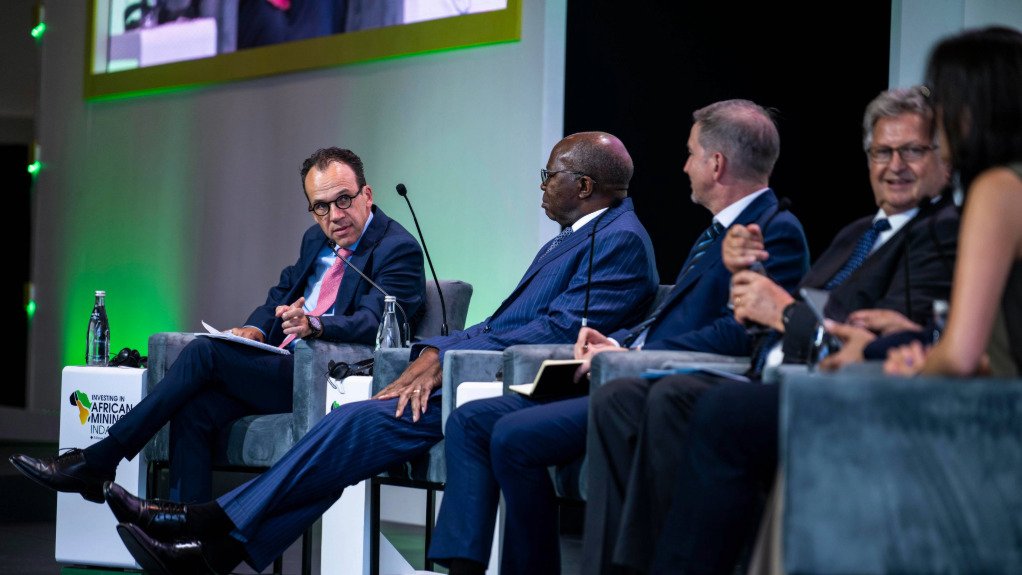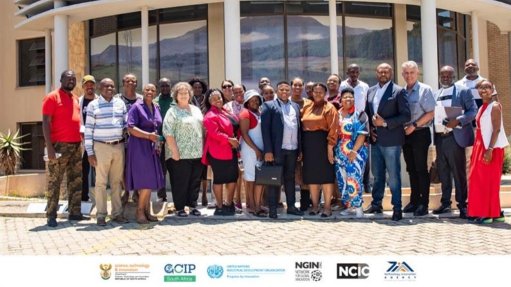Indaba bridges mining, automotive sector gap


SUPPORTING INDUSTRY GROWTH Mining Indaba 2026 will introduce a downstream buyers committee to facilitate the participation of the downstream sector
The Investing in African Mining Indaba 2026 (MI26) aims to bridge the gap between the mining and automotive industries, particularly as increasing development in electric vehicles (EVs) drives demand for minerals such as lithium, cobalt, nickel and rare earth elements.
Aligned to its theme ‘Stronger Together: Progress Through Partnership’, the MI26 will highlight the growing interdependence between the mining and automotive industries, says Mining Indaba organiser Hyve Group content and communities director Laura Nicholson.
“Mining companies and automakers need to form strategic partnerships to secure sustainable, ethical and long-term supply chains with new mineral supply that can be sourced from Africa.”
She adds that the theme calls on industry leaders to co-create a future in which Africa’s mineral wealth enables inclusive prosperity and climate resilience.
Nicholson says African governments are increasingly prioritising local processing and value addition over the export of raw materials.
Automotive manufacturers can benefit from this by investing in battery manufacturing or vehicle assembly plants on the continent, ensuring proximity to key resources, while mining companies can benefit from downstream integration and enhanced market access.
Aligned to this vision, the MI26 promotes intra-African partnerships, aiming to shift focus from raw material exports to regional value chains, says Hyve Group government partnerships head Zeinab El-Sayed.
“The event fosters conversations around harmonised regulations, which are essential for cross-border collaboration.”
She adds that the Indaba will highlight frameworks, including the African Continental Free Trade Area Agreement and the AU’s mining vision, which prioritise resource-based industrialisation and shared beneficiation strategies.
El-Sayed asserts that, to allow for the realisation of the full potential of these frameworks, political will must advance collaboration over competition, supported by investment in infrastructure to connect countries and facilitate trade.
Further, trust and transparency are required to ensure fair benefit-sharing and attract private-sector support for long-term regional strategies.
Consequently, MI26 aims to empower and encourage African nations to transition from competition to complementarity, whereby specialisation replaces duplication.
Joint investment in infrastructure, such as roads, energy and ports, through public–private partnerships, can also offer shared benefits and cost savings while facilitating broader economic development.
Downstream Users
While the automotive sector remains a key focus, the Indaba has expanded its focus since 2024 to include a broader range of downstream buyers. These include manufacturers that require raw minerals for beneficiation and product manufacturing, as well as refineries and smelters upgrading minerals for end-use applications such as batteries.
Therefore, MI26 will introduce a downstream buyers committee to shape content direction and facilitate the participation of the downstream sector.
Chaired by downstream buyers expert Dr Martyn Davies, the committee includes C-suite executives from industry transformation initiative Automotive Industry Transformation Fund, as well as automotive manufacturers BMW South Africa and Isuzu, among other stakeholders.
Further, next year’s Indaba will include a half-day downstream buyers programme, aligned with the committee’s content focus.
“We’re not just facilitating dialogue — we’re building a community of action that can accelerate Africa’s integration into global supply chains,” says Nicholson, highlighting an overarching aim to create an ecosystem where downstream buyers become long-term partners.
Supply Chain
Amid growing consumer and investor demands for cleaner, more transparent supply chains, Nicholson explains that partnerships between miners and automakers can ensure responsible sourcing, community engagement and alignment with environmental, social and governance goals.
She notes that technology, such as blockchain, AI and traceability platforms, can assist in bridging existing gaps and fast-track solutions that allow for open supply chains.
However, she asserts that, beyond technology, the Indaba will also focus on the processes and standards required to ensure transparent supply chains, including discussing what is needed to meet supply chain requirements.
Through the Indaba, automotive companies can highlight their requirements to secure African supply chains while mining companies can showcase how they are doing so.
As highlighted at the 2025 Mining Indaba, the African mining sector must observe international supply chain requirements to be recognised as a Tier 1 player.
She also cites automotive manufacturer Volkswagen Group Africa’s emphasising its commitment to integrating African raw materials into its manufacturing processes at the 2025 event. This commitment is meant to include localising supply chains for critical minerals, supporting local processing and refining capacity and advocating for increased African content in vehicles.
“While we, as an event, cannot drive transformation, we can ensure the strategic role-players needed to drive responsible supply chains are in the room and having the necessary conversations – steered by ensuring the relevant content,” Nicholson concludes.
Article Enquiry
Email Article
Save Article
Feedback
To advertise email advertising@creamermedia.co.za or click here
Press Office
Announcements
What's On
Subscribe to improve your user experience...
Option 1 (equivalent of R125 a month):
Receive a weekly copy of Creamer Media's Engineering News & Mining Weekly magazine
(print copy for those in South Africa and e-magazine for those outside of South Africa)
Receive daily email newsletters
Access to full search results
Access archive of magazine back copies
Access to Projects in Progress
Access to ONE Research Report of your choice in PDF format
Option 2 (equivalent of R375 a month):
All benefits from Option 1
PLUS
Access to Creamer Media's Research Channel Africa for ALL Research Reports, in PDF format, on various industrial and mining sectors
including Electricity; Water; Energy Transition; Hydrogen; Roads, Rail and Ports; Coal; Gold; Platinum; Battery Metals; etc.
Already a subscriber?
Forgotten your password?
Receive weekly copy of Creamer Media's Engineering News & Mining Weekly magazine (print copy for those in South Africa and e-magazine for those outside of South Africa)
➕
Recieve daily email newsletters
➕
Access to full search results
➕
Access archive of magazine back copies
➕
Access to Projects in Progress
➕
Access to ONE Research Report of your choice in PDF format
RESEARCH CHANNEL AFRICA
R4500 (equivalent of R375 a month)
SUBSCRIBEAll benefits from Option 1
➕
Access to Creamer Media's Research Channel Africa for ALL Research Reports on various industrial and mining sectors, in PDF format, including on:
Electricity
➕
Water
➕
Energy Transition
➕
Hydrogen
➕
Roads, Rail and Ports
➕
Coal
➕
Gold
➕
Platinum
➕
Battery Metals
➕
etc.
Receive all benefits from Option 1 or Option 2 delivered to numerous people at your company
➕
Multiple User names and Passwords for simultaneous log-ins
➕
Intranet integration access to all in your organisation



















